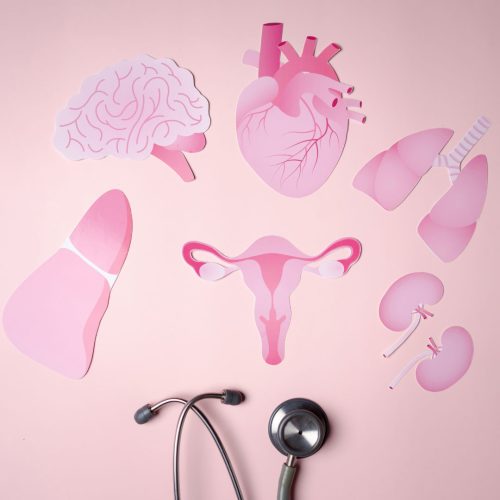Menopause is a complete break in the menstrual cycle and occurs one year after the last menstrual period and lasts for the rest of woman’s life. The period of gradual extinction of the ovarian function lasts from five to ten years and covers peri-menopause, menopause and post-menopause.
Menopause is the end of a woman’s reproductive capacity, caused by hormonal changes. It is a natural phenomenon that occurs in older women due to the depletion of ovarian function. During the period of menopause, there are major changes in the way the body functions of the woman, but also changes that affect the quality of life because, in addition to physical difficulties, there are psychological problems that impair daily functioning.
Symptoms
The main sign that indicates the onset of menopause is irregular menstruation, which may occur more often than usual at first, and then the breaks between the two menstrual periods will increase. Additional symptoms that result from variations in the amount of hormones secreted are: the onset of hot flashes, night sweats, mood swings, insomnia, headaches and rapid heartbeats. Not all ladies will feel all the symptoms, nor will the intensity of the symptoms be the same, so the most sensitive group will be those women who have had intense symptoms in premenstrual syndrome (PMS) and those who have experienced postpartum depression. This group of women is actually most sensitive to changes in hormonal status.
Epidemiological data say that as many as 75-85% of women experience symptoms that more or less affect their quality of life and work ability. Although menopausal health and advancement should be a priority for every woman, most of them do not pay enough attention and do not respond adequately to symptoms that should not be neglected, as the consequences can be much more dangerous.
Due to the decrease in estrogen production, collagen is lost, so menopausal women experience thinning of the skin and hair, the appearance of joint and muscle pain, but a far more serious consequence is the occurrence of osteoporosis, or reduced bone density, which increases the risk of fracture even with harmless bumps and falls. A decrease in the amount of estrogen in the body will also lead to a decreased secretion of serotonin, a hormone that has a significant effect on mood, which is why panic attacks and depression can occur during menopause.
Diagnosis
Menopause can be proven by confirming the patient’s absence of menstruation within the last year or longer. The help of a physician should be sought as soon as irregular menstruation occurs or if the first symptoms of climax occur, in order to initiate adequate therapy on time and to maximize quality of life. Diagnosis is based on the results of hormonal and baseline analyzes, gynecological and internist examination, mammography and breast ultrasound. Menopause most commonly occurs between the ages of 45 and 55. It should not be seen as a disease, but as a process of accustoming the body to new changes.
Therapy
There are many non-pharmacological measures that can help women during this period. Some of them are: regular exercise, smoking cessation, reduction of caffeine, sugar and alcohol intake, and adequate preparation for a night’s sleep, which involves reducing the lighting in the room, avoiding looking at the TV or mobile phone before going to sleep, etc. Through the numerous tests that have been conducted, experts have come to the conclusion that adequate supplementation would greatly help women to overcome this period and slow down the occurrence of possible complications.






